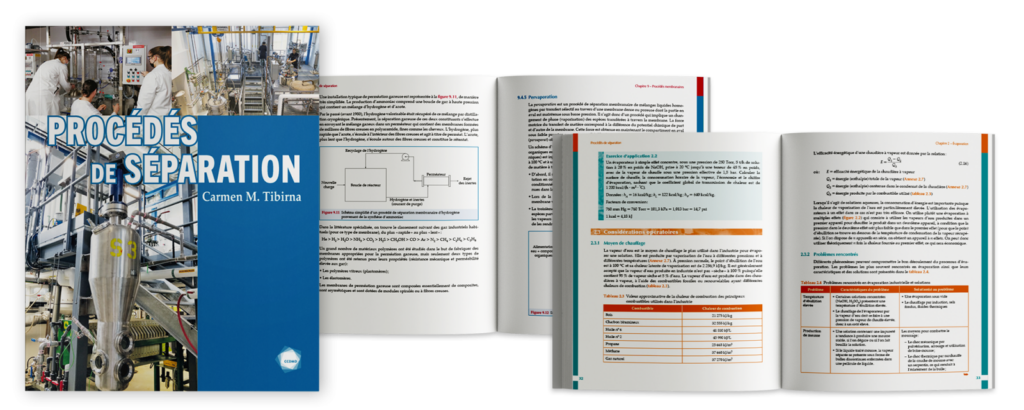
Intended for people studying Industrial Process Techniques, this textbook is the first French-language work on these methods. It is mainly aimed at the acquisition of two skills: “Controlling separation systems” and “Analyzing the functioning of typical industrial processes.”
Divided into ten chapters, Procédés de séparation explains the theoretical notions necessary for understanding the physical and chemical phenomena surrounding separation processes.
It presents an overview of industrial applications of separation processes related to the roles of technicians in different sectors of activity. The terminology used also corresponds to that used in the industry.
The processes and operation of certain devices are presented and described in the form of diagrams throughout the pages in order to facilitate their understanding. Exercises are offered at the end of each chapter, and an answer key completes the textbook.
About the author
Carmen M. Tibirna, M.Sc. Chemical Engineering, Ph.D. Chemistry
After studying chemical engineering in Romania, the author obtained a master’s degree in chemical engineering and a doctorate in chemistry from Université Laval in Quebec. Post-doctoral studies in green chemistry, subsidized by L’Oréal Paris and carried out at Université Laval, complemented her training.
In 2007, she began teaching at Cégep de Lévis for technical programs in chemical engineering, analytical chemistry, biotechnology, and natural sciences.
As a professor of chemical engineering and the coordinator of the Chemical Engineering Techniques program at Cégep de Lévis, the author worked to develop the new Industrial Process Techniques (IPT) program from 2016 to 2018. She has participated in the implementation of this program at Cégep de Lévis since 2019 while performing part-time research work at Kemitek (college centre for technology transfer), located in Thetford Mines. The author also actively participated in the creation of an IPT company/school at Cégep de Lévis, and she has been involved in its operation since 2020.